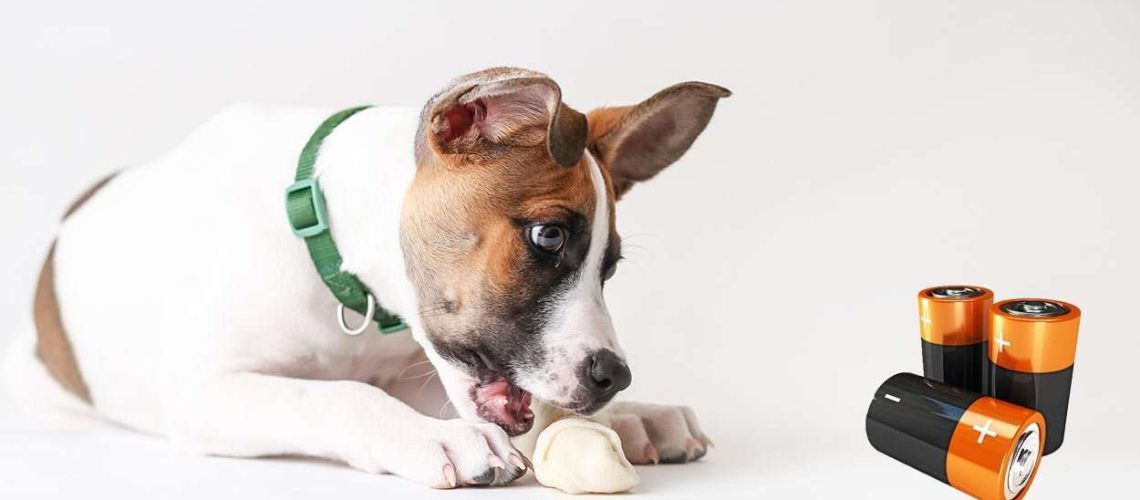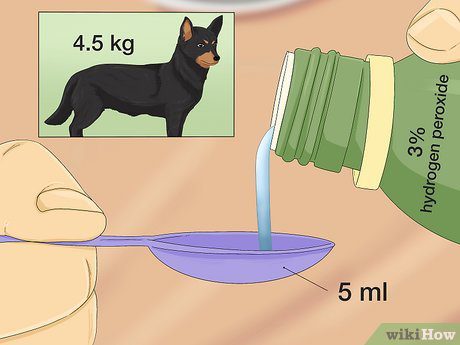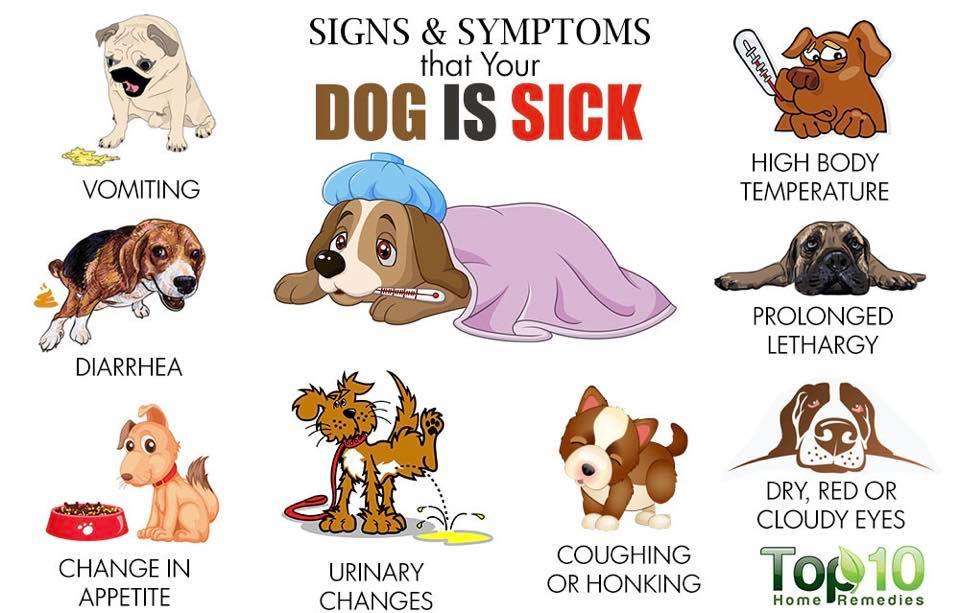Key Takeaways:
- Seek immediate veterinary attention if your dog has ingested a battery.
- Do not induce vomiting or give your dog any home remedies without consulting a veterinarian first.
- Keep the packaging or any remnants of the battery to show the veterinarian.
- Monitor your dog for symptoms such as vomiting, diarrhea, abdominal pain, or lethargy.
- Prevent future incidents by keeping batteries and other hazardous items out of your dog's reach.
Introduction:
Are you a proud dog owner? If so, then you know how curious and mischievous our furry friends can be. But what would you do if your dog suddenly swallowed a battery? It may sound alarming, but don't worry! In this article, we'll explore the steps you need to take if your dog accidentally ingests a battery. Understanding this topic is essential because it could potentially save your dog's life. So, let's dive in and discover how to handle this situation with confidence and ensure the well-being of our beloved pets.
What to Do if Your Dog Swallows a Battery
The Importance of Acting Quickly if Your Dog Eats a Battery
If your dog swallows a battery, it is important to act quickly because batteries can be very dangerous for dogs. Batteries contain chemicals that can leak out and cause serious harm to your dog's internal organs. The longer the battery stays in your dog's system, the more damage it can cause. It is crucial to take immediate action to prevent any potential complications.
Signs that Your Dog May Have Ingested a Battery
If you suspect that your dog has swallowed a battery, there are some signs you can look out for. These signs may include vomiting, diarrhea, loss of appetite, drooling excessively, and difficulty breathing. You may also notice your dog acting lethargic or showing signs of discomfort. If you observe any of these symptoms, it is important to seek veterinary help right away.
Potential Dangers of Dogs Swallowing Batteries
Dogs swallowing batteries can be extremely dangerous due to the toxic chemicals they contain. When a battery gets stuck in the digestive tract, it can cause blockages or perforations in the intestines. The chemicals inside the battery, such as lithium or alkaline substances, can leak and burn through your dog's tissues, leading to severe internal injuries.
In addition to physical injuries, batteries can also pose an electrical hazard if they become lodged in specific areas of the body where they come into contact with nerves or vital organs. This can result in electrical burns or even electrocution.
Simple Steps to Follow if Your Dog Eats a Battery
If you suspect that your dog has swallowed a battery, follow these steps:
- Stay calm and try to assess the situation. If you see any signs of distress or discomfort in your dog, do not wait and seek immediate veterinary assistance.
- If your dog is not showing any symptoms yet, check for any missing batteries or signs that a battery may have been chewed or damaged. This can help confirm your suspicion.
- Contact your veterinarian right away and explain the situation. They will provide you with further instructions based on the type and size of the battery ingested.
- Do not induce vomiting unless specifically instructed by a professional. Vomiting can cause further damage if the battery has already caused internal injuries.
- Follow any additional guidance provided by your veterinarian, such as monitoring your dog's behavior or bringing them in for an examination.
Who to Contact for Help If Your Dog Ingests a Battery
If your dog ingests a battery, it is important to contact your veterinarian immediately. They are trained professionals who can provide you with the best advice and guidance based on your specific situation. Do not hesitate to reach out to them, even if you are unsure whether your dog actually swallowed a battery. It is always better to be safe than sorry when it comes to potential hazards like batteries.
Potential Dangers of Dogs Swallowing Batteries
When a dog swallows a battery, it can pose serious dangers to their health. Batteries contain chemicals that can leak and cause burns or ulcers in the digestive tract. This can lead to pain, discomfort, and even life-threatening complications. In addition, batteries can also get stuck in the esophagus or intestines, causing blockages that may require surgical intervention to remove.
If a battery is swallowed and not promptly addressed, it can result in long-term damage to the dog's internal organs. The corrosive nature of battery acid can erode tissues and lead to perforations or infections. It is crucial to take immediate action if you suspect your dog has ingested a battery.
The Risks of Battery Ingestion
Swallowing batteries can have severe consequences for dogs. The most common types of batteries ingested by dogs are button batteries, found in items like remote controls and watches, and cylindrical batteries from devices such as flashlights or toys. These small yet powerful energy sources contain chemicals like lithium or alkaline that are harmful when released into the body.
Symptoms of Battery Ingestion
- Vomiting
- Loss of appetite
- Lethargy
- Abdominal pain or discomfort
- Drooling excessively
- Bloody stool or vomit (in severe cases)
If you notice any of these symptoms or suspect your dog has swallowed a battery, it is crucial to act quickly to prevent further complications.
Simple Steps to Follow if Your Dog Eats a Battery
If you find yourself in the unfortunate situation where your dog has swallowed a battery, it is essential to take immediate action. Remember, time is of the essence when dealing with potential battery ingestion.
Step 1: Assess the Situation
First, stay calm and assess the severity of the situation. If your dog is displaying any symptoms or distress, it is crucial to act swiftly. Look for signs of discomfort or unusual behavior that may indicate battery ingestion.
Step 2: Do Not Induce Vomiting
Contrary to other situations involving foreign objects, inducing vomiting should not be attempted if your dog has swallowed a battery. The corrosive chemicals inside batteries can cause further damage when brought back up through vomiting.
Step 3: Contact Your Veterinarian Immediately
Reach out to your veterinarian immediately and explain the situation. They will provide guidance on what steps to take next based on your dog's size, the type of battery ingested, and any symptoms they may be experiencing.
The Importance of Prompt Veterinary Care
It cannot be stressed enough how crucial it is to seek professional veterinary care as soon as possible after a dog swallows a battery. Even if your dog appears fine initially, internal damage may still occur without proper medical intervention.
Who to Contact for Help If Your Dog Ingests a Battery
In case of a battery ingestion emergency, there are several key contacts you should reach out to:
Your Veterinarian
Contacting your regular veterinarian should be your first step. They are familiar with your pet's medical history and can provide immediate advice tailored specifically to your dog's needs.
An Animal Poison Control Hotline
It is also advisable to have the number of an animal poison control hotline readily available. These hotlines are staffed by experts who can provide guidance on how to handle battery ingestion emergencies and may be able to offer additional advice while you transport your dog to the veterinarian.
Preventing Battery Ingestion
While accidents can happen, there are steps you can take to minimize the risk of your dog swallowing a battery:
- Keep batteries securely stored in closed containers or locked cabinets.
- Avoid leaving batteries within reach of pets, especially small button batteries.
- Regularly check devices for loose or damaged batteries that could be easily accessed by your dog.
By being proactive and taking precautions, you can help ensure the safety and well-being of your furry friend.
In conclusion, if your dog accidentally eats a battery, it is important to act quickly and seek veterinary help. Remember to keep batteries out of reach from pets to prevent such incidents in the future.
What can happen if a dog eats a battery?
Unfortunately, it is possible for a dog to die if it swallows a battery. Eating a battery can cause blockages in the digestive system, burns to the intestines from the electricity and chemicals, and toxicity from the heavy metals in the battery. If a dog sustains an injury to their stomach or intestines, they may experience pain and be unable to eat or drink within a day.
Can a dog survive chewing a battery?
Ingesting batteries can pose a serious risk to your pet's health. If a pet chews or punctures an alkaline battery, it can release a harmful substance that can cause burns in their mouth, esophagus, or stomach.
Can chewing on a battery be harmful?
Reports indicate that psychiatric patients who bite or damage the battery casing before swallowing it are at a higher risk of heavy metal poisoning or gastrointestinal ulcers. Typically, a surgical procedure called laparotomy is necessary to remove the foreign object. This information was reported on March 25, 2013.
Can a 2 year old swallow a AAA battery?
This passage is stating that for children between 1 and 3 years old, the passage where objects can pass through is relatively narrow. If a child were to swallow a large battery, whether it is a button battery, a hearing aid battery, or a standard AA battery, it could become stuck in the esophagus and cause harm to the surrounding tissue. This information was reported on September 23, 2016.
What happens if you digest a battery?
If a lithium button battery is accidentally swallowed, it can pass through the throat, stomach, and intestines without causing any problems. However, it is important to be cautious as swallowed button batteries can lead to severe injuries, and in some cases, even death. There have been numerous instances where button batteries have become stuck in children's throats and caused burns.
What happens if you chew a AAA battery?
The majority of swallowed batteries do not cause any issues. However, batteries that get stuck in the esophagus need to be removed right away. These batteries cause harm by putting pressure on the lining of the esophagus, leaking corrosive alkali, and producing electric current.

















